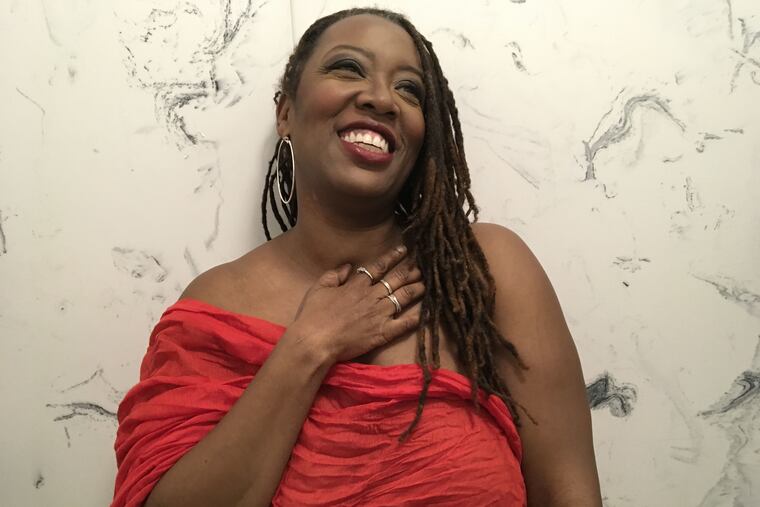The secret to ‘The Secret Lives of Church Ladies’ was in rejection | Helen Ubiñas
“I’ve been divorced twice… so the idea of things not working out the way you plan, you know, I’m familiar with that and I’m familiar with pivoting...," said author Deesha Philyaw.

First things first: I vote to name Deesha Philyaw’s debut short-story collection, The Secret Lives of Church Ladies, the next One Book, One Philadelphia.
And yes, I’ve already been politely informed that there’s a committee, of which I am not a member, that decides what book the city will read together on any given year.
But to paraphrase a popular expression: I’m columnizing it into existence. Book-lover Jesus, hear my prayer.
There’s a reason for my enthusiasm, and it’s not just because after more than a year of pandemic brain slogging through all kinds of great works, I opened up Philyaw’s sometimes steamy book and devoured it. Like three-syllable de-vou-red!
At 179 pages, it’s not long, but that’s not why I read it so quickly and loved it so much.
I didn’t grow up going to church, not like the women Philyaw masterfully draws out on each page. The closest “church lady” I knew was Abuela Blanca, who belonged to a church where dancing was apparently frowned upon, so I was out.
And yet, as I read these nine stories, I felt as if I knew these women: bickering sisters who had each other’s backs, daughters navigating difficult relationships with their mothers, tough but tender Black women, who like the woman who created them got what needed doing, done.
For Philyaw, 49, who lives in Pittsburgh with her two daughters, that meant getting the short stories, some of which had been rejected multiple times by various publications, into the world. Even if she had to publish them herself — something she was willing to do before a small academic publisher snatched them up.
It might seem odd that given all my fangirling that I would spend most of my discussion with Philyaw talking about rejection, but after learning more about the twists and turns taken to create the little book that could, and did, and is still doing, it seemed necessary.
The book, released in 2020 by West Virginia University Press, was a finalist for the 2020 National Book Award for Fiction, received the Story Prize, a Los Angeles Times Book Prize, and the PEN/Faulkner Award for Fiction. It is now being adapted for HBO to be produced by actress Tessa Thompson.
“I feel like I have a healthy relationship with rejection,” Philyaw said when we recently talked. “I’ve been divorced twice … so the idea of things not working out the way you plan, you know, I’m familiar with that and I’m familiar with pivoting and starting a new chapter, and plan B and all of that.”
For a few years of her 20-year writing career, that meant juggling writing with a 9-to-5 job.
“On some level I had to learn to take the rejection in stride because I just didn’t have the luxury to dwell on it because I had to be on to the next thing.”
She credits advice from fellow writer Debra Dickerson in helping her shift her focus: Stop worrying about getting your writing published and worry about getting better at writing.
As we turned over the realities, and unexpected opportunities in rejection, we inevitably arrived at success. Hers, but also other Black writers coming up behind her in underrepresented spaces that haven’t always centered or celebrated voices like theirs.
“It’s more like: ‘What can I fix?’” she said. “What I know that I can do is support other Black women writers … challenging the lie that there can only be one. So, it’s using the platform that I have to talk about these issues.”
In the midst of a pandemic and the year of “alleged racial reconciliation that wasn’t,” she said, that means continuing to call out the challenges, but also highlighting and celebrating the successes “so people see this system can work, like, my book came out, Dawnie Walton’s book came out, Dantiel [Moniz’s] book came out, and so the excuses that publishing has historically given? We fly in the face, we defy all of that.”
It also means, Philyaw said, that “when we walk through a door that was open for us that we bring other people along too, so not everybody has to keep confronting the same closed door.”
The women in The Secret Lives of Church Ladies are caught between double standards and the expectations of others as they grapple with who they want to be in the world.
Philyaw, the woman who created them, is doing all she can to ensure the world makes room for their stories.